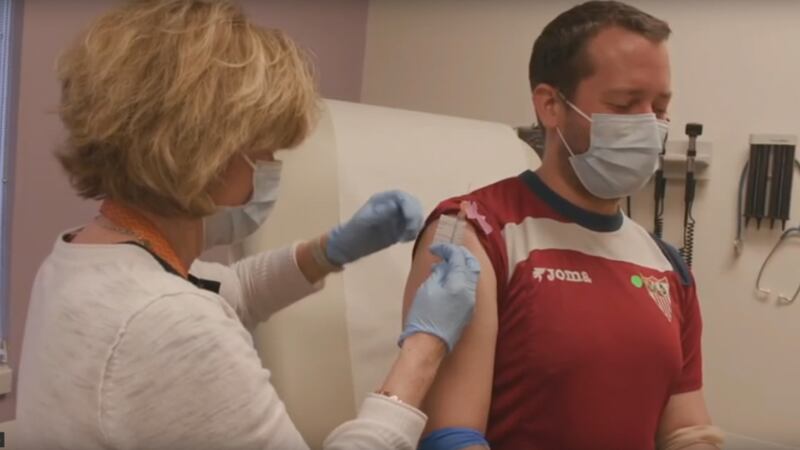ATLANTA — The nation's top infectious disease doctor is optimistic about a potential treatment. The clinical trial is being led by researchers at Emory University Hospital.
The National Institutes of Health released the findings Wednesday afternoon.
“The data shows that remdesivir has a clear-cut, significant, positive effect in diminishing the time to recovery,” said Dr. Anthony Fauci, with National Institute of Allergy and Infectious Diseases.
[READ: Local researchers test experimental Ebola drug as possible coronavirus treatment]
Last month, we reported that Emory was testing the drug remdesivir an experimental drug that until now, was primarily used to treat Ebola patients.
Emory was the lead on the clinical trial and had the most participants in the study that includes more than 1,000 people across the world.
“This is an important development,” said Dr. Aneesh Mehta, Emory University Hospital’s chief of infectious diseases services.
[READ: The fight against coronavirus: A clinical trial participant talks about his experience]
Doctors say the drug works by blocking the virus' ability to make more of itself and build within the body.
Researchers say this treatment is not a vaccine and should not be considered a silver bullet.
“Remdesivir is the first therapeutic, the first medication to show a positive effect with patients with COVID-19,” Mehta said.
RELATED STORIES:
- Costco will now require shoppers to wear face coverings inside stores
- 2 Georgia men drank cleaning products to fight coronavirus, poison officials say
- LIST: When some malls in north Georgia plan to reopen
TEarly data from the clinical trial is showing that people taking the drug spent 11 days in a hospital compared to 15 days for people not taking the drug.
"It may decrease the overall mortality of patients of COVID-19, but again, we need far more data to make any of those judgments become more concrete. We will get that data in the coming weeks," Mehta said.
Every patient who is part of the trial has been hospitalized and is showing moderate to severe symptoms of coronavirus.
The lead investigator says now the drug's potential impact could save lives.
“That helps us shorten the amount of time the patient needs to be in the hospital, and getting medical care, and decreases the chance of developing complications from their COVID-19 infection," Mehta said.
There is cautious optimism about this data and doctors say they need more complete information within the next few weeks.
Mehta said even though this isn't a vaccine, the drug is a major step forward in the fight against the coronavirus pandemic.
"It is one additional tool to help us get our patients better and get them home to their families quicker," Mehta said.
There’s no timeline on when the U.S. Food and Drug Administration will approve the drug for use.
© 2020 Cox Media Group





